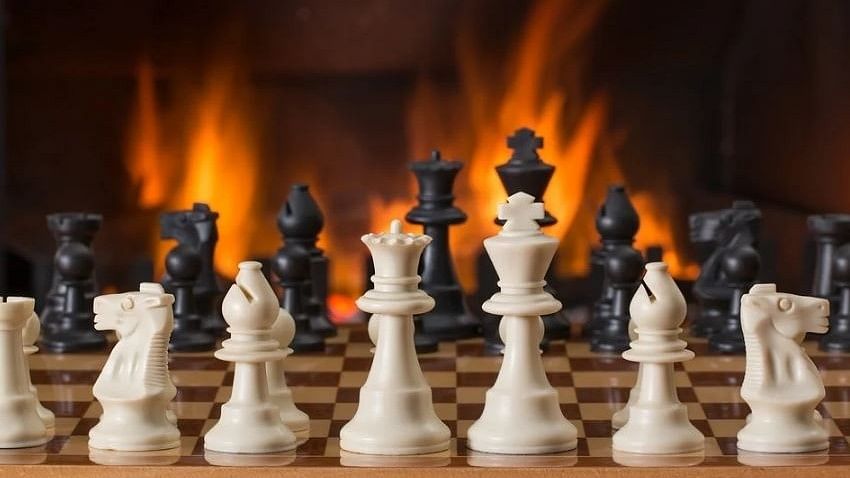
Chess.
Pixabay Photo
India’s early rulers and their wise men used to play chess, popularly known as ‘Shatranj’, to sharpen their thinking skills and plan manoeuvres on the battlefield. Even though the game’s popularity dwindled in between, it is making a dramatic comeback in schools as academicians and parents realise its ability to improve pupils’ concentration, planning and other skills.
Chess, a centuries-old game, is much more than just fun. It’s a brain-stimulating exercise that gets young minds to focus, think deeply and develop patience while anticipating the opponent’s next move. These skills are certainly essential in the growing-up years and can help with everything from maintaining concentration to solving problems.
The best part is this intellectually stimulating game can be played nearly anywhere and at any age. And with the proliferation of online games, you can play it virtually, too, even without a physical board. Many schools worldwide are including chess as an extra-curricular option or as part of the timetable.
Here are some reasons why many parents and their kids, as well as academic institutions, are willing to devote time to the game.
Heightened cognitive function: Critical thinking and problem-solving skills are a requisite to playing chess. As a result, regular practice can enhance children’s cognitive function, making them mentally sharper and alert. Studies have shown that chess players tend to have better memory, concentration levels and heightened brain function than those unfamiliar with the game.
Mindfulness: Chess requires the mind to be fully alert to assess the situation before making the next move. In an age where more value is placed on slowing down and being ‘present’ at the moment, chess can certainly sharpen the intellect.
Planning and reasoning skills: As the game requires episodes of silent contemplation to anticipate the opponent’s moves and plan the next series of countermoves, it gets young minds to reflect profoundly and plan. Your planning skills get sharpened after each chess session. Through logic and reasoning, one can predict outcomes and counter-act accordingly.
Boost creativity: To come up with winning strategies, players must think outside the box and be able to envision various scenarios and outcomes. Kids can apply this imagination and creativity to other areas of life and solve problems with green-hat thinking.
Decision-making: From applying logic and anticipating an opponent’s moves to changing plans based on the dynamics of the game, chess helps the mind to ponder and dissect the situation before making a manoeuvre. This intense evaluation helps in better and sound decision-making, which can be extended to real-life situations as well.
Patience and perseverance: Chess isn’t an instant or fast game. It warrants patience and perseverance to strategise and follow it up until checkmate. This type of perseverance is essential to sail through hardships and obstacles of life and make your way out of problems. Equipping kids with such persistence through gaming is certainly beneficial in the maturing years.
Maintain calm and composure: In a game of chess, each move must be a calculated one, and the display of aggression or haste decisions do not help. Only by remaining calm and composed can you astutely attack your opponent. This calmness and composure are indispensable to the youth to make their way out of tunnels in life.
Concentration and confidence: Each time you play chess, your unwavering attention to the game helps increase concentration levels and keep distractions at bay. Also, the confidence level improves as you get the hang of it. Eventually, the time dedicated translates to better confidence and concentration levels game after game.
As the game’s potential to equip pupils with essential skills has been recognised, including it in the school curriculum or as an extra-curricular activity is becoming common. Offline and online chess training centres and academies have made learning the game easy. It is time to teach your kids the game of pins, forks, gambits, sacrifices, checkmates and winning.
(The author is a freelance writer)